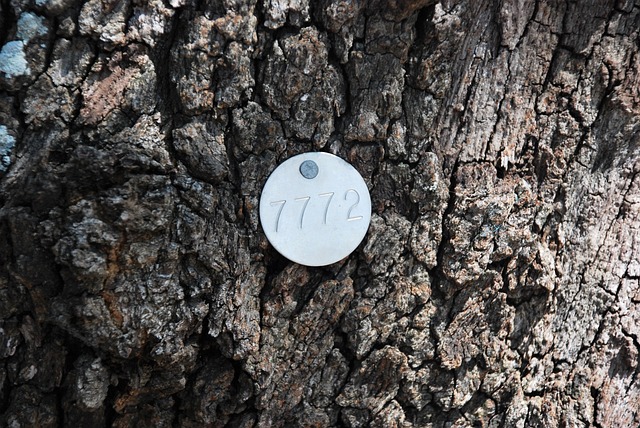When buying a second-hand car, it's imperative to conduct a thorough VIN check and vehicle history analysis to avoid potential pitfalls such as undisclosed accidents, water damage, or fraudulent odometer readings that can affect the car's safety, reliability, and future value. A significant 40% of used cars may harbor undisclosed issues, which a VIN lookup can uncover, revealing past titles, accidents, and service records. This process is indispensable for informed decision-making, helping to ensure that the car's history aligns with its current condition, thus avoiding costly surprises and ensuring buyer safety and satisfaction. A VIN verification is non-negotiable for differentiating between reliable pre-owned vehicles and those with undisclosed issues, making it a vital step in the used car purchasing process.
When navigating the complex market of used cars, discerning buyers recognize the importance of due diligence to safeguard their investment. A vehicle’s history, often shrouded in mystery, can significantly impact its reliability and safety. This article demystifies the process of assessing a pre-owned car’s past, emphasizing the pivotal role of VIN validation and verification. By exploring a range of VIN-related insights, from accident history to ownership records, car shoppers can uncover valuable information that influences their purchase decision. With statistics revealing a staggering 40% of used cars harboring undisclosed damage, understanding the risks and how to mitigate them is not just beneficial—it’s essential for informed decision-making in the used car market.
- Understanding the Risks of Buying Used Cars: A Closer Look
- The Importance of VIN Validation in Your Car Selection Process
- Deciphering a Vehicle's Past: What a Car History Check Reveals
- Identifying Red Flags with VIN Verification: Accidents, Ownership, and Recalls
- How to Perform a VIN Lookup: A Step-by-Step Guide for Buyers
- Protecting Your Investment: The Role of VIN Verification in Securing a Reliable Used Car
Understanding the Risks of Buying Used Cars: A Closer Look

Navigating the used car market requires a discerning eye and due diligence, as each vehicle comes with its own set of unknowns. A car’s history is often opaque to potential buyers, who may inadvertently encounter issues such as undisclosed accidents, flood damage, or odometer tampering. These factors can significantly affect the car’s safety, reliability, and long-term value. The risks are not merely theoretical; according to a report by Carfax, a substantial 40% of used cars for sale carry some form of hidden damage history that could compromise the vehicle’s integrity and performance. This underscores the importance of conducting a comprehensive VIN validation and vehicle history check. By inputting a car’s Vehicle Identification Number (VIN) into a reliable database, buyers can access a wealth of information about the vehicle’s past, including detailed accident records, service history, title history, and recall notices. This due process empowers consumers to make informed decisions, reducing the likelihood of unknowingly purchasing a car with undisclosed issues that could lead to future expenses and safety concerns. It’s a critical step in the used car buying process that can save time, money, and ensure peace of mind for the buyer.
The Importance of VIN Validation in Your Car Selection Process

When considering the purchase of a used car, the integration of technology and due diligence can significantly influence the outcome. VIN validation serves as a critical step in the selection process, offering a transparent view into a vehicle’s history that extends beyond its current appearance. A Vehicle Identification Number is unique to each car, much like a fingerprint, and when entered into a database, it reveals a comprehensive record of the vehicle’s past, including titles, accidents, and service records. This information is indispensable for potential buyers, as it can expose critical details that may influence their decision to purchase. For instance, prior accidents might compromise the car’s structural integrity and safety, while hidden damage might not be immediately visible during a cursory inspection. By conducting a thorough VIN lookup, car shoppers can avoid the pitfalls of unforeseen issues, ensuring they are making an informed decision rather than taking a risk on a vehicle with a concealed history. It’s a safeguard that empowers consumers to differentiate between a well-maintained used car and one that may turn into an expensive problem. In essence, VIN validation is not just a recommended step; it’s a pivotal part of the process for anyone looking to buy a used car with confidence.
Deciphering a Vehicle's Past: What a Car History Check Reveals

When considering the purchase of a used car, a vehicle’s history can be as important as its current condition. A comprehensive car history check, initiated by entering a vehicle’s unique Vehicle Identification Number (VIN), unlocks a wealth of information about a car’s past. This process reveals critical data such as the number of previous owners, service and maintenance records, accident history, title history, odometer readings, and any manufacturer recalls. It also checks if the vehicle has been reported stolen or is a salvage or rebuilt title vehicle. Such insights are indispensable for potential buyers; they help assess the car’s true condition and predict potential future issues. For instance, a history check might uncover that a car was involved in an accident, which could have led to frame damage not immediately visible. This information is crucial for informed decision-making, as it can influence the offer you make or whether you choose to walk away from the sale altogether. A VIN lookup acts as a window into the vehicle’s past, offering transparency and peace of mind to the buyer, thereby transforming what might have been a gamble into an investment with greater confidence. It’s a step that can save time, money, and prevent the purchase of a car with undisclosed issues.
Identifying Red Flags with VIN Verification: Accidents, Ownership, and Recalls

When considering the purchase of a used car, the Vehicle Identification Number (VIN) is more than just an identifier; it’s a gateway to understanding the vehicle’s history. A thorough VIN verification can unveil red flags that might otherwise remain hidden until it’s too late. For instance, a report from Carfax revealed that over a third of used cars carry a record of previous accidents. These incidents can range from minor fender-benders to more significant collisions that may have compromised the vehicle’s structural integrity or safety systems. A VIN lookup can reveal the extent and severity of past accidents, allowing you to assess whether the car has been properly repaired and is still safe to drive.
Similarly, a VIN check provides insights into the car’s previous ownership history. This information is crucial as repeated ownership changes might indicate frequent dissatisfaction or potential issues with the vehicle that prompted previous owners to sell it quickly. Additionally, a VIN verification service can flag any recalls associated with the car. Manufacturers often issue recalls for safety reasons, and if a vehicle has an outstanding recall notice, it’s imperative to address this before purchase, as it could pose a risk to your safety and impact the car’s reliability. By leveraging these services, you can make a more informed decision, turning what might have been a gamble into a savvy investment in a vehicle with a transparent history.
How to Perform a VIN Lookup: A Step-by-Step Guide for Buyers

When considering the purchase of a used car, conducting a thorough investigation into its history is paramount. A VIN lookup serves as a critical step in this process, offering a comprehensive overview of the vehicle’s past. The Vehicle Identification Number, unique to each automobile, encodes a wealth of information about the car’s manufacturing details, previous maintenance records, accident history, and more. To perform a VIN lookup, begin by locating the VIN on the vehicle—this can typically be found on the driver’s side dashboard, the vehicle’s insurance card, or the title document. With the VIN in hand, you can utilize online databases or services specifically designed for this purpose. These platforms allow you to enter the VIN and then compile reports detailing the car’s history, including any salvage titles, frame damage, odometer rollbacks, and recall notices. It’s advisable to use reputable services like Carfax or AutoCheck, which are widely recognized for their accuracy and comprehensiveness. After entering the VIN, you will be presented with a detailed report that highlights any red flags or positive aspects of the car’s history. This information empowers buyers to make an informed decision, ensuring they are not inadvertently purchasing a vehicle with significant undisclosed issues. Always verify the information provided by the VIN check with the seller and consider obtaining a mechanical inspection for additional peace of mind before finalizing the purchase.
Protecting Your Investment: The Role of VIN Verification in Securing a Reliable Used Car

When considering the purchase of a used car, due diligence is paramount to protect your investment and ensure the reliability of your vehicle. A Vehicle Identification Number (VIN) verification serves as a critical step in this process. The VIN is a unique code that provides a comprehensive history of the car, acting as its digital fingerprint. By inputting this 17-character code into a VIN decoder or a car history check service, potential buyers can uncover a wealth of information about the vehicle’s past. This includes details on any accidents it may have been involved in, the number of previous owners, repair records, mileage changes, and even if it has been subject to safety recalls. Armed with this knowledge, you can make an informed decision, avoiding potential pitfalls such as buying a car that could be a risk due to structural damage from prior collisions or one that has depreciated significantly due to neglect by previous owners. In essence, VIN verification is an indispensable tool in the process of selecting a used car that will serve you reliably and for many years to come. It’s not just about the initial cost but also about the long-term value and safety of your investment. Thus, taking the time to perform a thorough VIN lookup before finalizing a purchase is a step that should not be overlooked by any car buyer in the used vehicle market.
When considering the purchase of a used car, one must approach the process with due diligence. As highlighted throughout this article, the risks associated with such transactions can be significant without proper verification. The importance of VIN validation and comprehensive vehicle history checks cannot be overstated. These tools empower buyers to make informed decisions, uncovering critical information that could otherwise remain hidden. A recent report by Carfax underscores the prevalence of undisclosed damage in the used car market—a stark reminder of why these checks are indispensable. By performing a VIN lookup, you safeguard your investment and increase the likelihood of acquiring a reliable, quality pre-owned vehicle. In essence, VIN verification is a crucial step in the selection process, offering peace of mind and ensuring that the car’s history does not become your burden to bear.



